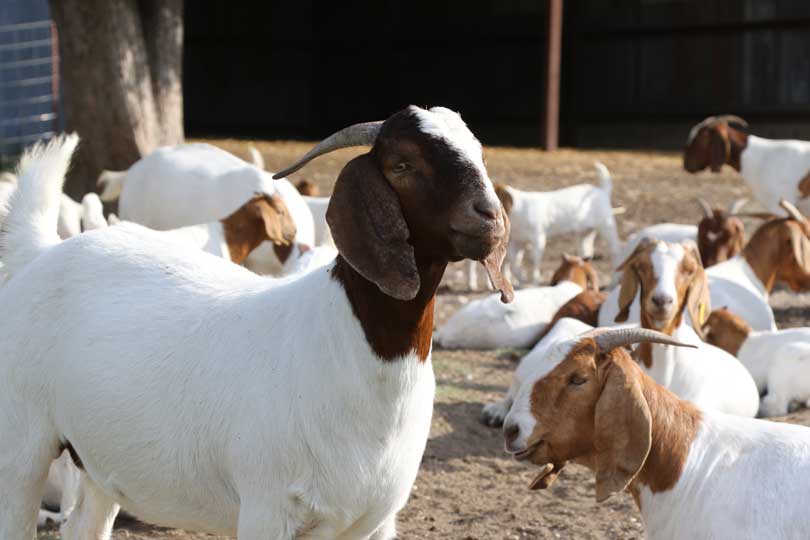By Jennifer Dorsett
Field Editor
Sheep and goat ranchers can now send samples to the Texas A&M AgriLife Research Fecal Egg Count Laboratory in San Angelo for accurate fecal egg-counting services.
The lab, which opened June 15, has a website and instructional videos available to assist ranchers who wish to submit samples.
“We are excited to be able to provide this genetic selection tool to the sheep and goat industry,” Jake Thorne, AgriLife sheep and goat extension associate, said. “Our website is now complete and contains videos and instructional information on collecting and submitting samples, all in an attempt to make this service as easy as possible for the producer.”
Fecal egg counts help ranchers identify which animals are more resistant to gastrointestinal nematodes such as barber’s pole worms, Thorne said. Using that knowledge, ranchers can make informed breeding decisions and reduce anthelmintic use in their flocks.
“Combating parasites is a complex problem and requires a multifaceted approach to solve it,” he said. “Being able to identify resistant animals and keeping those as replacements is a key component to helping producers successfully battle parasites.”
The cost is $5 per sample. The samples should be sent to the AgriLife Research and Extension Center at San Angelo using an overnight mail or delivery service. They should be placed in a
Styrofoam cooler with cold packs, but they cannot be frozen.
Additional instructions for submitting samples and related forms are available here.
Regular business hours are Monday-Friday, 8 a.m. to 5 p.m. Call the lab at 325.653.4576 during those hours to arrange to drop off samples in-person.
Samples are analyzed within seven days of arrival.
Thorne noted the laboratory at San Angelo does not conduct diagnostic testing. Requests for additional tests, including some diagnostic testing, may be submitted to the Texas A&M Veterinary Medical Diagnostic Laboratory.

